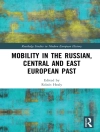This book explores the Spanish elite’s fixation on social and racial ‘passing’ and ‘passers’, as represented in a wide range of texts. It examines literary and non-literary works produced in the sixteenth and seventeenth centuries that express the dominant Spaniards’ anxiety that socially mobile lowborns, Conversos (converted Jews), and Moriscos (converted Muslims) could impersonate and pass for ‘pure’ Christians like themselves. Ultimately, this book argues that while conspicuous sociocultural and ethnic difference was certainly perturbing and unsettling, in some ways it was not as threatening to the dominant Spanish identity as the potential discovery of the arbitrariness that separated them from the undesirables of society – and therefore the recognition of fundamental sameness.
This fascinating and accessible work will appeal to students of Hispanic studies, European history, cultural studies, Spanish literature and Spanish history.
表中的内容
Introduction
Part 1: The usurpation of nobility and lowborn passers
1. Theorising and practicing nobility
2. The forgery of nobility in literary texts
Part II: Conversos and the threat of sameness
3. Spotting Converso blood in official and unofficial discourses
4. The unmasking of Conversos in popular and literary texts
Part III: Moriscos and the reassurance of difference
5. Imagining the Morisco problem
6. Desirable Moors and Moriscos in literary texts
Conclusion
Bibliography
Index
关于作者
Christina H. Lee is Tenured Research Scholar in the department of Spanish and Portuguese Languages and Cultures at Princeton University












